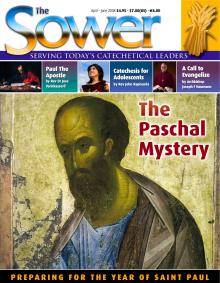The evangelist Luke has reproduced in the Acts of the Apostles the journeys that the Apostle Paul undertook along with others in order to set up Christian communities the length, and breadth of the Roman empire. Highly significant is the use of the Greek verb ‘discipling’[i] that is used towards the end of the first journey (see Acts 14:21). Discipling could be considered as a synonym for catechesis. The very purpose of catechesis is to make disciples, disciples in the true sense of the word. In this article we shall examine the first journey of Paul (Acts 13:1-14:28) so as to take note of the methods that the Apostle Paul used in order to win converts as well as to confirm them in their faith.
Luke has presented the person of Paul as an ideal catechist who is able to consolidate with his own personal life the faith of those entrusted to his care. What Paul is, is no doubt as important as what he does on behalf of the community by way of imparting faith formation.
At the outset of the first missionary journey, Luke refers to Saul [Paul] and Barnabas (along with three others) as prophets and teachers. This is what Paul is—a prophet and a teacher. These are two complementary gifts given by God in order to establish others in the faith.
The rest of this online article is available for current Guild members.
This article is from The Sower and may be copied for catechetical purposes only. It may not be reprinted in another published work without the permission of Maryvale Institute. Contact [email protected]

















